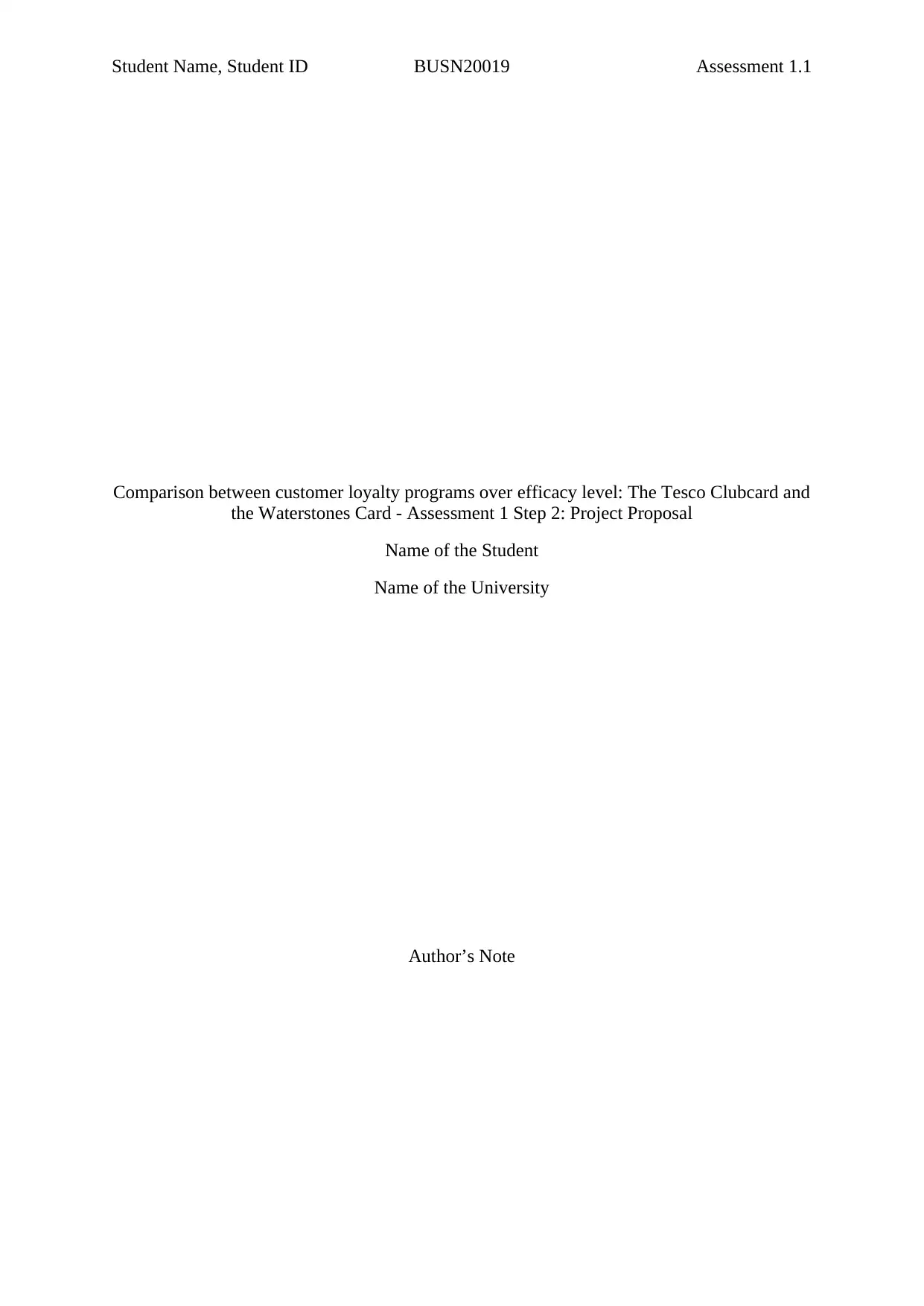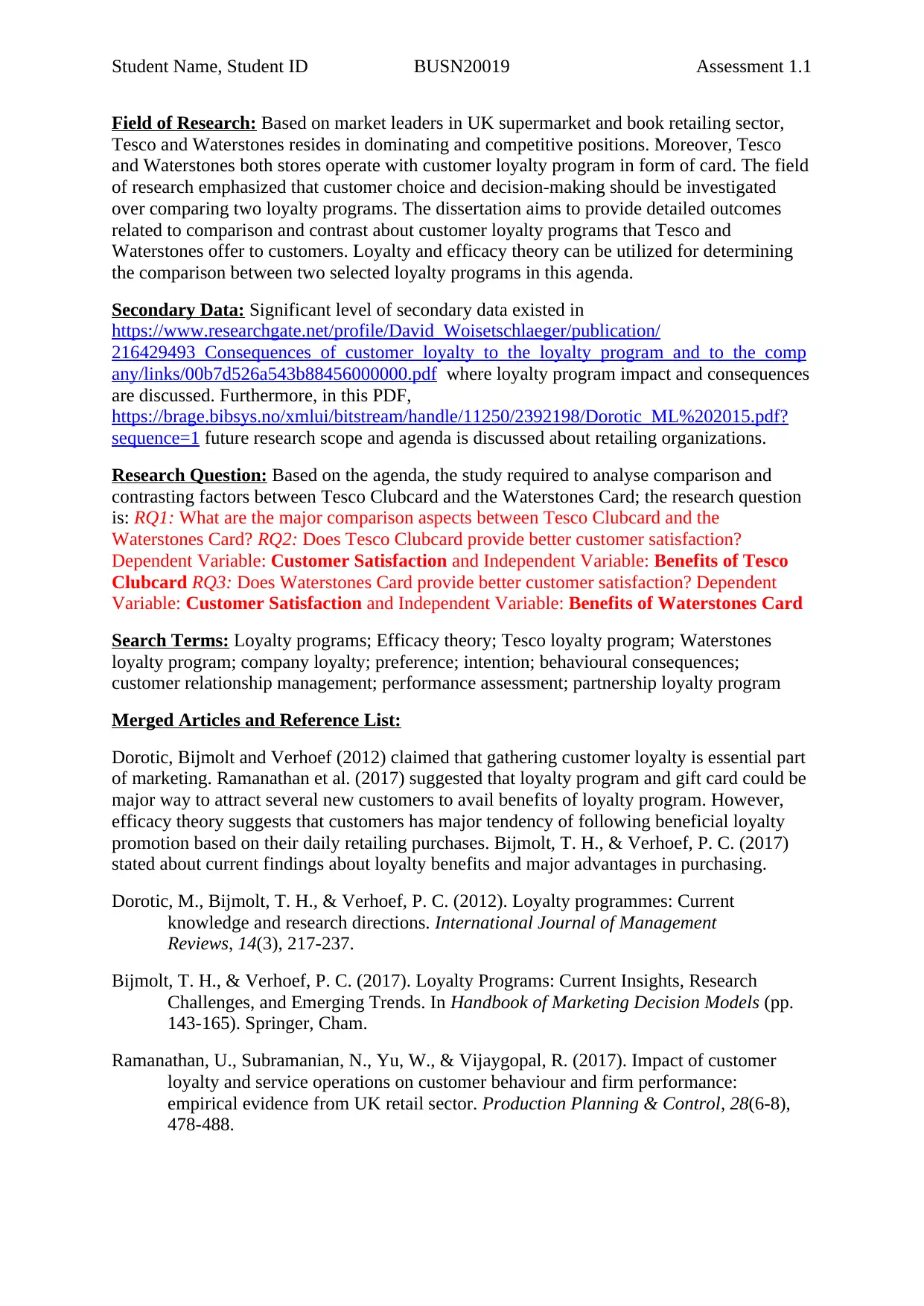University Report: Tesco Clubcard vs. Waterstones Card - BUSN20019
VerifiedAdded on 2020/04/29
|2
|562
|118
Report
AI Summary
This report, a project proposal for BUSN20019, compares the Tesco Clubcard and the Waterstones Card customer loyalty programs. The research, based on market leaders in the UK, aims to analyze and contrast these programs using loyalty and efficacy theory. The study poses research questions to assess customer satisfaction and the benefits of each card, identifying dependent and independent variables. Secondary data and search terms related to loyalty programs, efficacy theory, and customer relationship management are included. The report references key academic sources such as Dorotic, Bijmolt, and Verhoef (2012 & 2017), and Ramanathan et al. (2017) to support the analysis of customer loyalty, program impact, and future research directions. The goal is to determine which program provides better customer satisfaction and offers more effective benefits.
1 out of 2




![[object Object]](/_next/static/media/star-bottom.7253800d.svg)